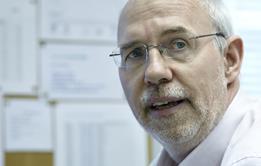How will the NHS drive improvements in quality and value at a time of significant financial pressure?
Couple that with a growing and ageing population - there will be 2 billion people worldwide aged 60-plus by 2050 - plus rising public expectations of health services, and the challenge becomes even greater.
‘We must start to think of healthcare as a creator, not just a consumer, of national wealth’
Health and healthcare will continue to take up a greater share of the UK’s GDP, unless we transform the way we deliver healthcare.
As Professor Young makes clear, the answer does not lie in doing more of the same. We will need to change the way healthcare is delivered, where it is delivered, who delivers it and how patients access services.
As he says, we must also start to think of healthcare as a creator, not just a consumer, of national wealth. And we should not forget that ill health impairs economic productivity and is estimated to cost the UK economy more than £100bn annually.
New relationship with indudstry
One of the biggest barriers to the spread of new ideas is poor access to evidence and data. That is why Professor Young’s work is so important.
But it is not just about research, data and evidence. We also need an entirely new relationship with industry, similar to the one that the Cumberland Initiative and the commissioning board’s own academic health science networks are pioneering. That relationship is based on trust, not transaction, and it is based on value, not solely cost.
Healthcare needs visionaries like Professor Young, people prepared to experiment and challenge the status quo. As Albert Einstein said: “If we always do what we always did, we will always get what we always got.”
Miles Ayling is director of innovation and service improvement at the Department of Health
‘What we need is to find problems that are exquisitely difficult’

Brunel University’s professor of healthcare systems Terry Young is on a quest to bring modelling and simulation into health service delivery
- 1
 Currently
reading
Currently
reading
Miles Ayling on health delivery





























No comments yet